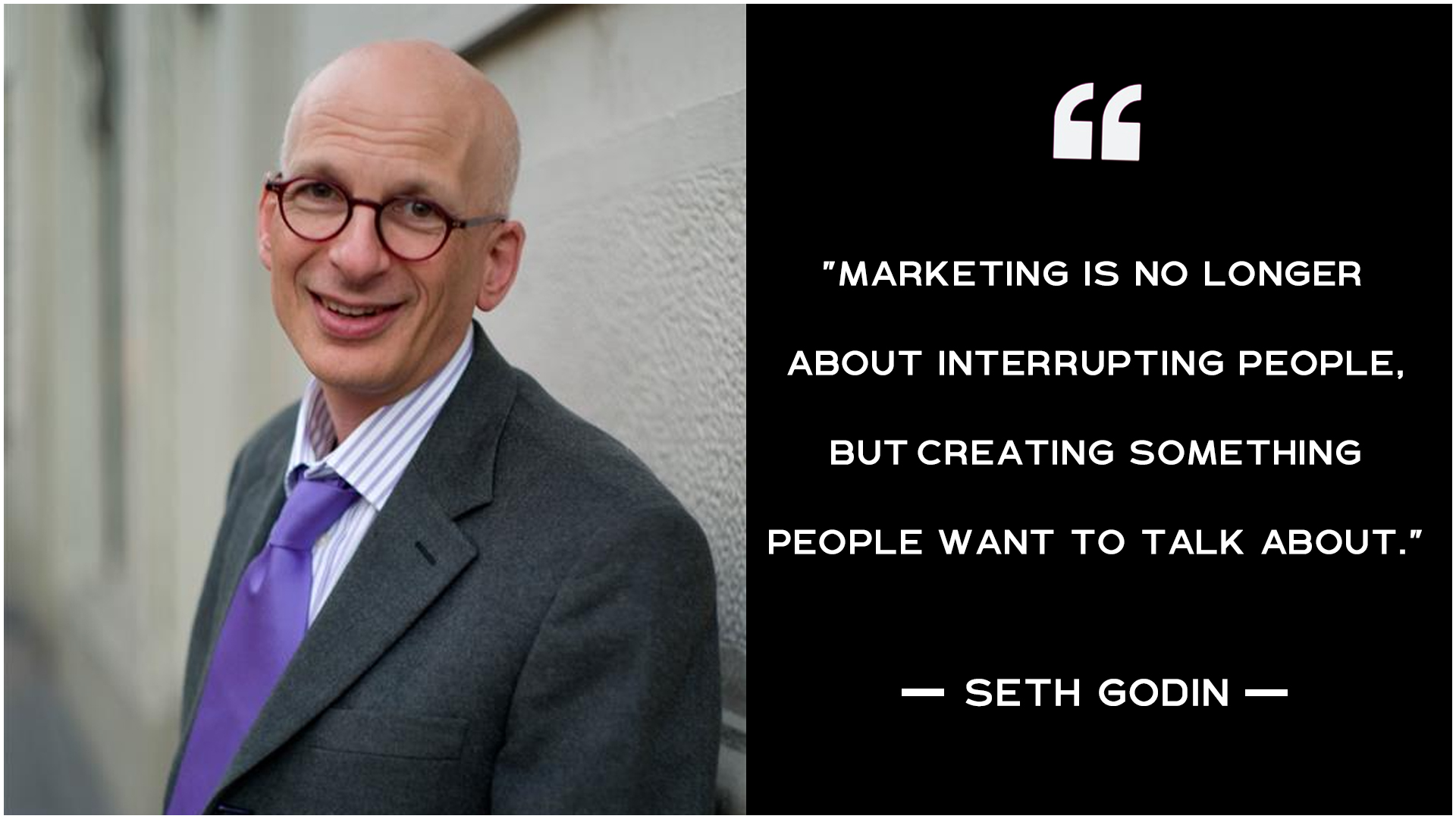Table of Contents
Introduction
Digital advertising is entering a new era where AI has shifted from being a support tool to the core driver of campaigns. Google Ads is leading this transformation by reshaping how businesses reach audiences, optimize spending, and track performance.
In 2025, AI-powered Google Ads campaigns go beyond automation with predictive targeting and generative ad creatives. Real-time bidding and cross-channel attribution now allow advertisers to deliver hyper-personalized experiences at scale.
This guide covers everything about Google Ads AI campaigns in 2025, including how they work and the newest updates. You’ll also learn best practices for setup, optimization, and staying ahead in a highly competitive digital landscape.
What Are Google Ads AI Campaigns?
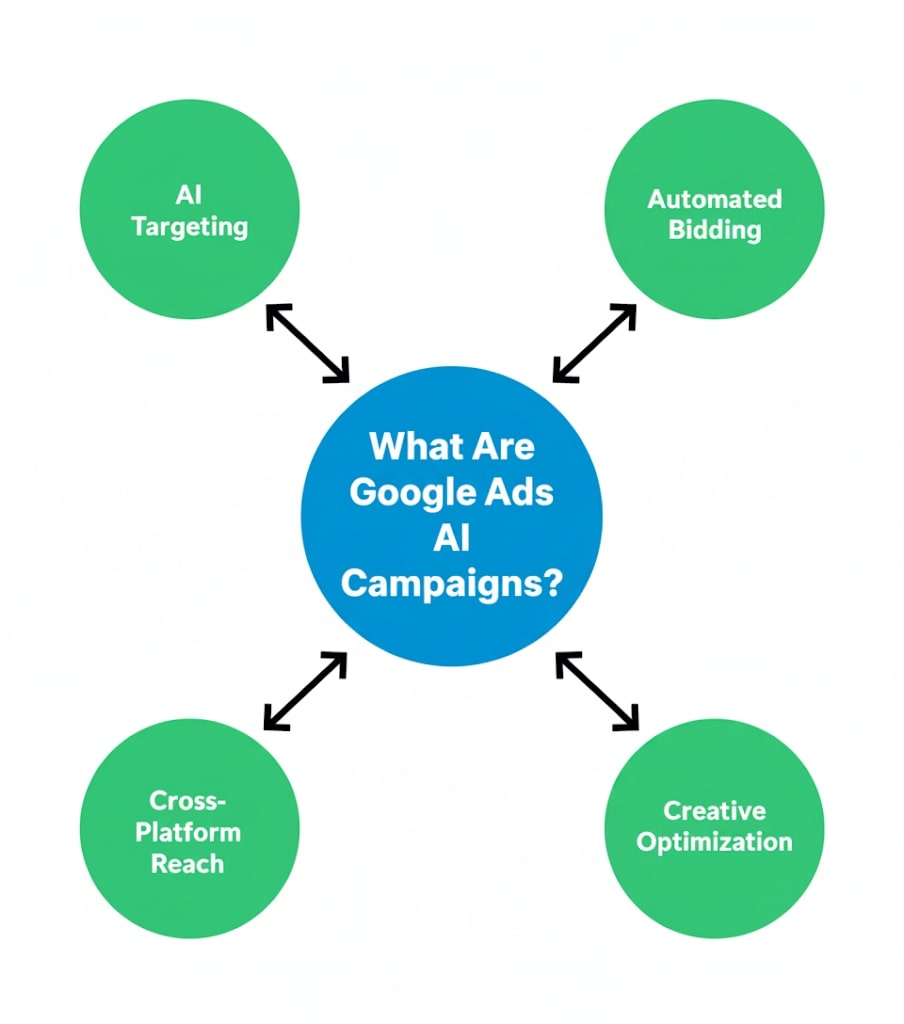
- AI Targeting: Uses machine learning to detect subtle patterns in consumer intent that traditional targeting might miss. Helps advertisers discover new audience segments they may not have considered.
- Automated Bidding: Minimizes wasted ad spend by ensuring every bid is tied to the likelihood of conversion. Provides transparency through performance data, so advertisers can still monitor efficiency.
- Creative Optimization: Reduces the guesswork for marketers by letting AI determine the most persuasive ad copy and visuals. Ensures ads remain competitive by refreshing creative combinations automatically over time.
- Cross-Platform Reach: Ensures that a single budget is optimized across all placements instead of being fragmented. Allows advertisers to reach users multiple times across platforms, reinforcing brand awareness.
Types of Google Ads AI Campaigns in 2025
Google has continued to evolve its ad offerings, making AI the backbone of campaign creation, targeting, and optimization. Below are the main AI-powered campaign types and features that define advertising in 2025:
Performance Max (PMax) Campaigns
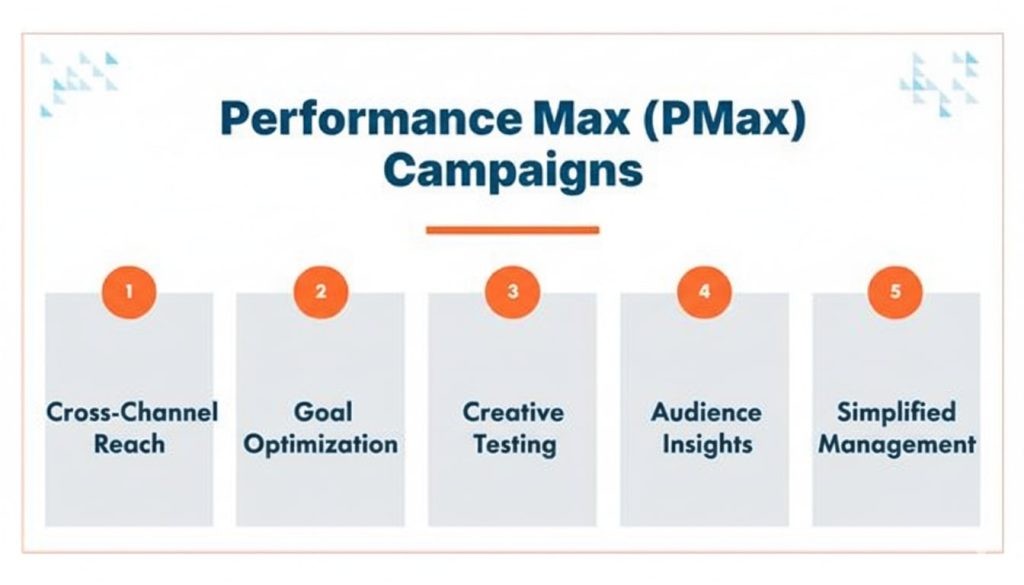
- Cross-Channel Reach: Google’s flagship AI-driven campaign runs across all Google channels—Search, Display, YouTube, Gmail, Maps, and Discover—using a single campaign setup and budget.
- Goal Optimization: The AI continuously optimizes campaigns based on your specific objectives, such as sales, leads, or website traffic. This ensures every impression and click is directed toward measurable business outcomes.
- Creative Testing: Advertisers provide multiple assets—headlines, descriptions, images, and videos—and the AI tests different combinations to find the most effective creatives for each audience segment.
- Audience Insights: Performance Max collects and analyzes performance data in real time, offering insights into which audience segments, devices, and locations drive the best results, helping businesses make smarter decisions for future campaigns.
- Simplified Management: With PMax, businesses no longer need to manage separate campaigns for each channel. The AI automates targeting, bidding, and placement decisions, saving time and reducing manual work while maintaining high performance.
AI Max for Search Campaigns
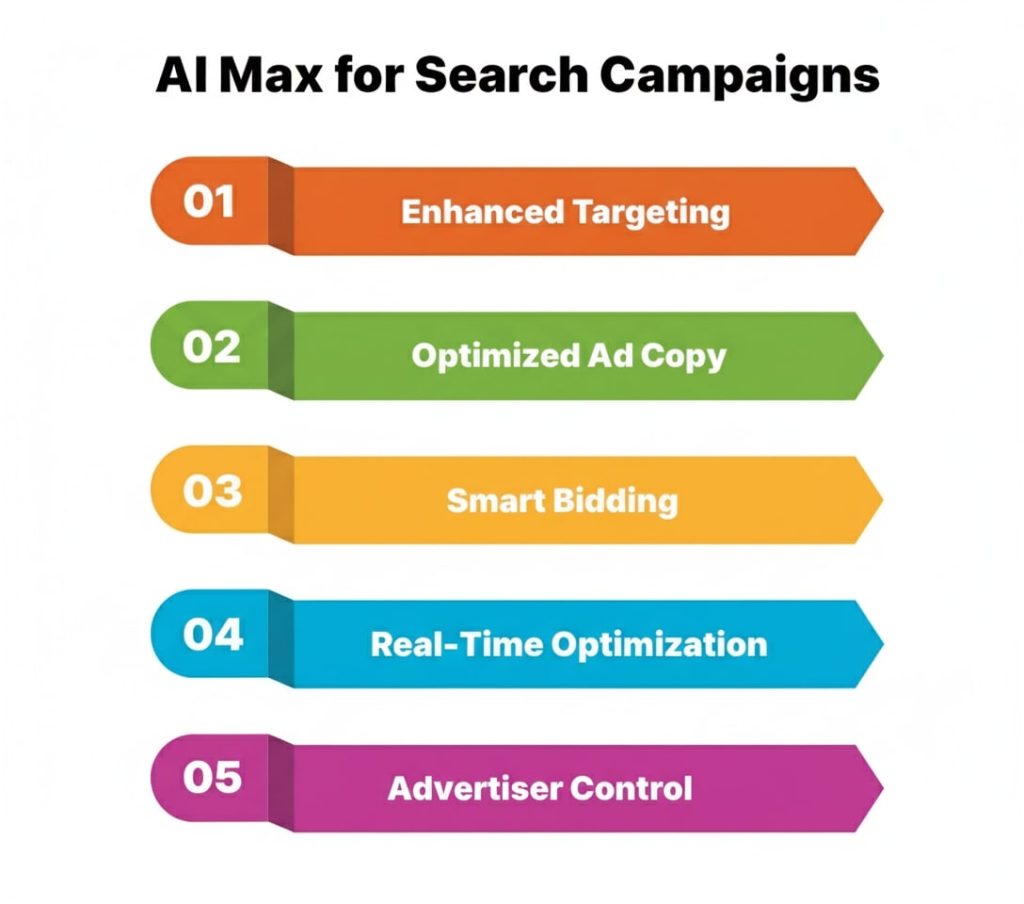
- Enhanced Targeting: AI Max uses advanced machine learning to supercharge targeting in Search campaigns. It identifies high-intent users even when they don’t use your exact keywords, helping you reach audiences more likely to convert.
- Optimized Ad Copy: The AI generates optimized headlines and descriptions based on search trends, past campaign performance, and audience behavior. This ensures your ads are relevant, engaging, and tailored for each search query.
- Smart Bidding: AI Max automatically adjusts bids using Smart Bidding strategies like Target CPA and Target ROAS, ensuring that your budget is spent efficiently on clicks with the highest conversion potential.
- Real-Time Optimization: The AI continuously monitors campaign performance and fine-tunes targeting, bids, and ad delivery in real time to maximize ROI and reduce wasted spend.
- Advertiser Control: Unlike fully automated campaigns, AI Max provides transparency and control, letting advertisers adjust budgets, set negative keywords, and review performance insights, while still benefiting from AI-driven optimizations.
Demand Gen Campaigns
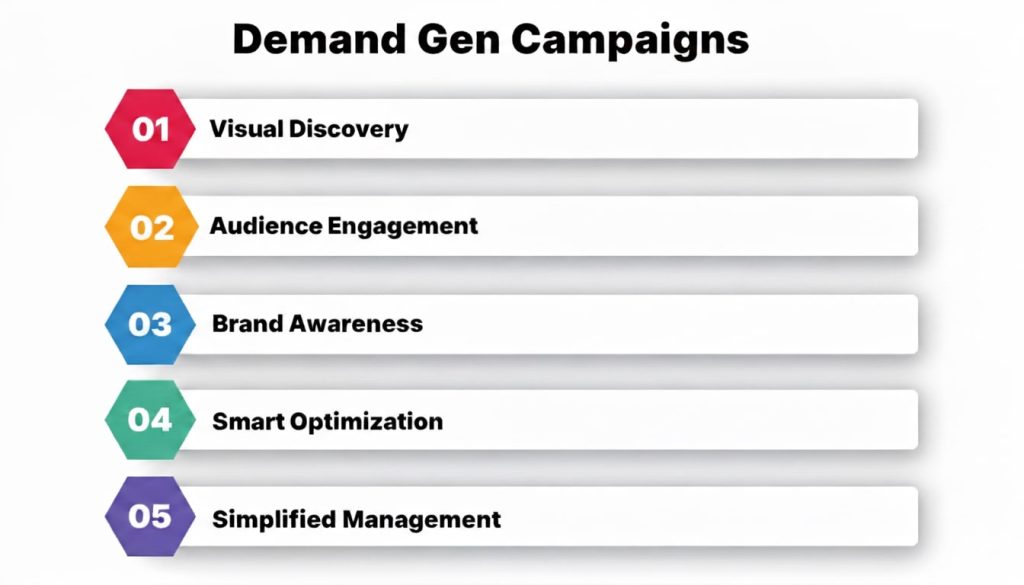
- Visual Discovery: Designed to create and capture demand on Google’s most visual platforms, including YouTube, YouTube Shorts, Discover, Gmail, and Display Network.
- Audience Engagement: AI identifies users likely to interact with discovery-style content and serves visually rich, engaging ads tailored to their interests.
- Brand Awareness: Ideal for product launches, new services, and brand campaigns, helping businesses reach users early in the buyer journey.
- Smart Optimization: AI continuously monitors performance and adjusts targeting, placements, and creative delivery to maximize engagement and conversions.
- Simplified Management: A single campaign spans multiple platforms, eliminating the need to manage separate campaigns while maintaining consistent messaging.
Standard Search Campaigns with AI
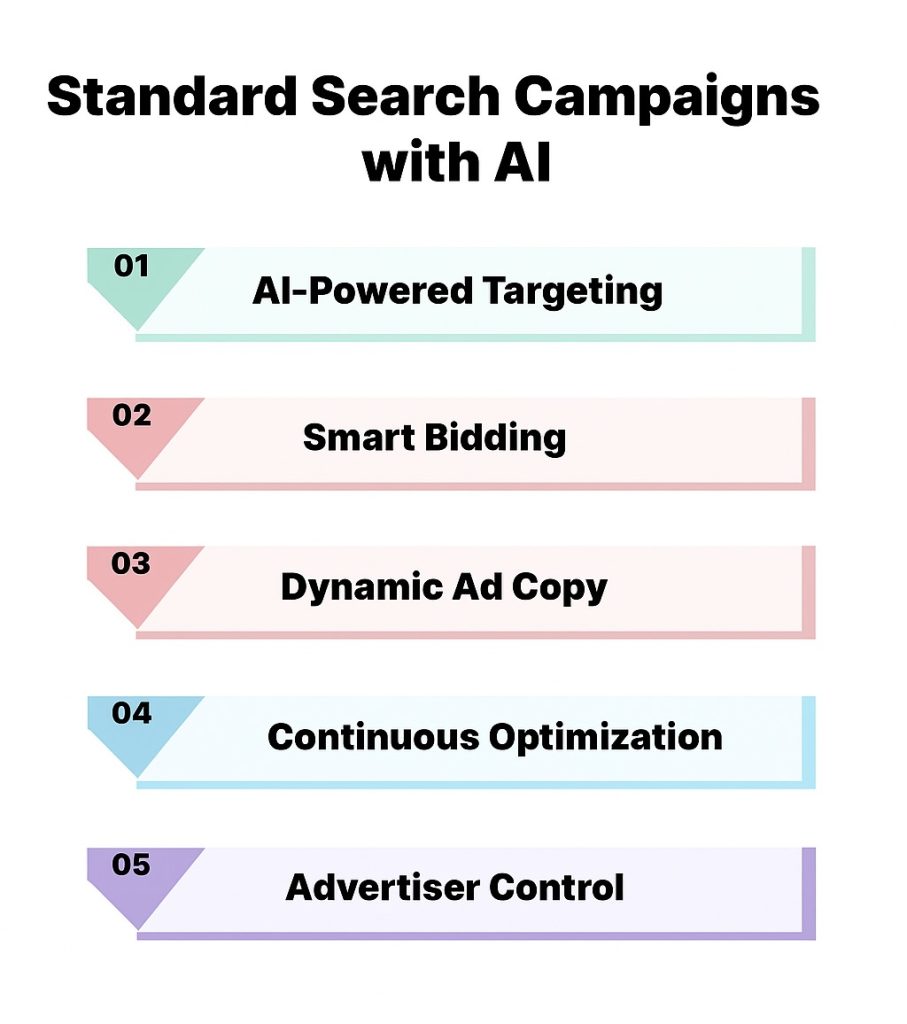
- AI-Powered Targeting: AI helps identify high-intent users by analyzing search patterns and predicting which queries are most likely to convert.
- Smart Bidding: Automatically adjusts bids in real time using strategies like Target CPA and Target ROAS to maximize conversions and ROI.
- Dynamic Ad Copy: Generates optimized headlines and descriptions, tailoring text to match user queries and improve relevance.
- Continuous Optimization: AI monitors campaign performance and adjusts keywords, bids, and ad delivery automatically to improve results over time.
- Advertiser Control: Provides transparency and allows marketers to manage budgets, negative keywords, and performance insights while benefiting from AI-driven optimizations.
Video and Shopping Campaigns with AI
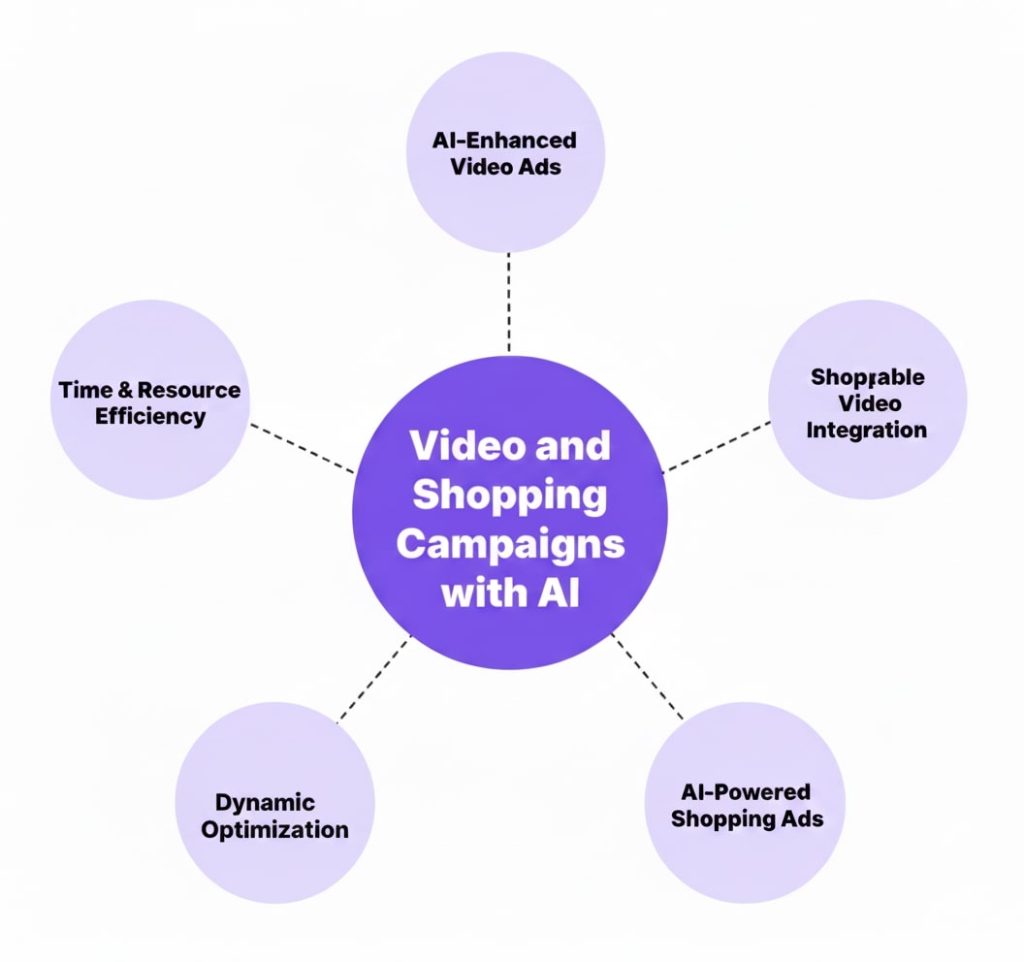
- AI-Enhanced Video Ads: Uses AI to optimize YouTube and interactive video ads, making it easier for viewers to move from awareness to purchase.
- Shoppable Video Integration: Enables click-to-buy features within videos, allowing users to explore products directly while watching content.
- AI-Powered Shopping Ads: Generates product carousels automatically, highlighting pricing, pros, and cons to help shoppers make informed decisions.
- Dynamic Optimization: AI continuously tests ad formats, placements, and targeting to maximize conversions across both video and shopping campaigns.
- Time & Resource Efficiency: Reduces the need for manual setup of individual ads or campaigns, letting advertisers focus on strategy and creative planning.
AI-Powered Ad Experiences
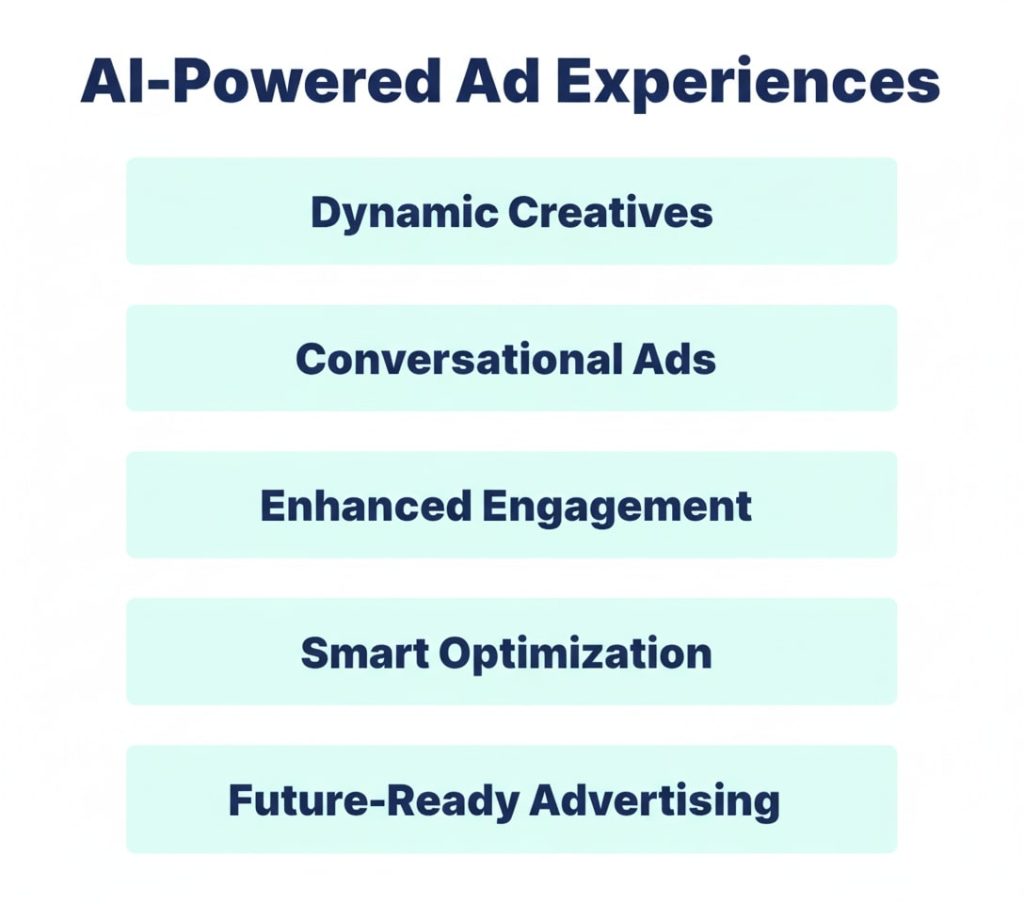
- Dynamic Creatives: AI generates personalized images, carousels, and videos for ads, tailored to audience preferences and campaign goals.
- Conversational Ads: Allows users to interact directly with ads, asking questions or exploring product options in real time.
- Enhanced Engagement: Creates highly interactive and immersive ad experiences, increasing user attention and click-through rates.
- Smart Optimization: AI continuously tests formats, messaging, and placements to ensure maximum relevance and conversions.
- Future-Ready Advertising: Supports next-generation ad formats and innovative user interactions, keeping brands competitive in a rapidly evolving digital landscape.
Benefits of AI-Powered Google Ads
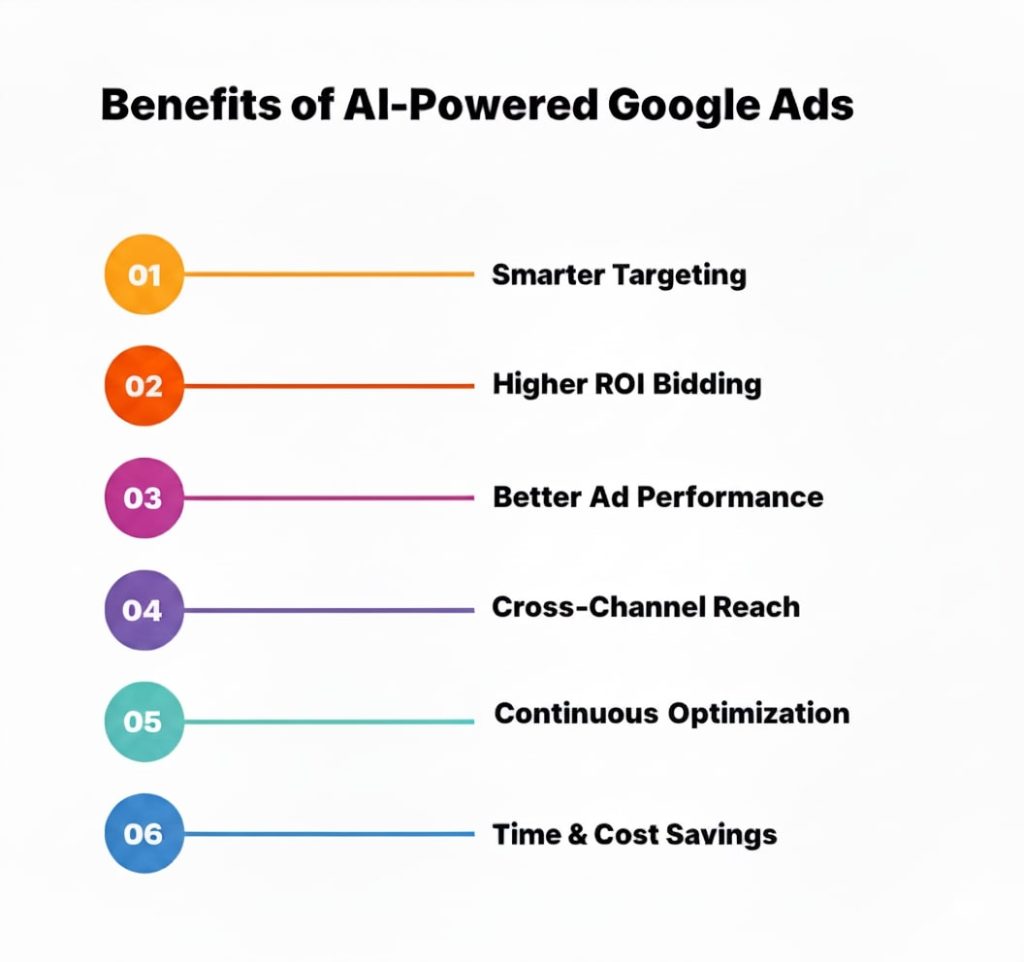
Google Ads campaigns powered by artificial intelligence bring a wide range of advantages that make advertising more efficient, cost-effective, and scalable.
- Smarter Targeting: AI analyzes thousands of real-time signals—such as location, device, browsing habits, and intent—to identify the most relevant users. Goes beyond keywords, reaching audiences who are actively likely to convert, even if they haven’t typed your exact search term.
- Higher ROI Bidding: AI adjusts bids dynamically at every single auction, ensuring you don’t overspend on clicks that won’t convert. Uses smart bidding strategies like Target CPA or Target ROAS to align with your business goals.
- Better Ad Performance: Responsive ad formats let you upload multiple headlines, descriptions, and visuals. Google’s AI tests endless combinations and shows the most effective version to each audience segment.
- Cross-Channel Reach: A single campaign can appear across Search, YouTube, Display, Maps, Gmail, and Discover. Ensures consistent brand messaging while meeting users wherever they spend time online.
- Continuous Optimization: AI doesn’t just set and forget—it constantly learns from performance data. Over time, campaigns become more efficient, reducing cost per conversion.
- Time & Cost Savings: Reduces the need for constant manual adjustments, keyword management, and bid monitoring. Frees marketers to focus on creative strategies, audience insights, and broader campaign planning.
Features of Google Ads AI Campaigns
AI-powered Google Ads campaigns combine automation with real-time intelligence, giving businesses a smarter way to advertise. Here are the key features:
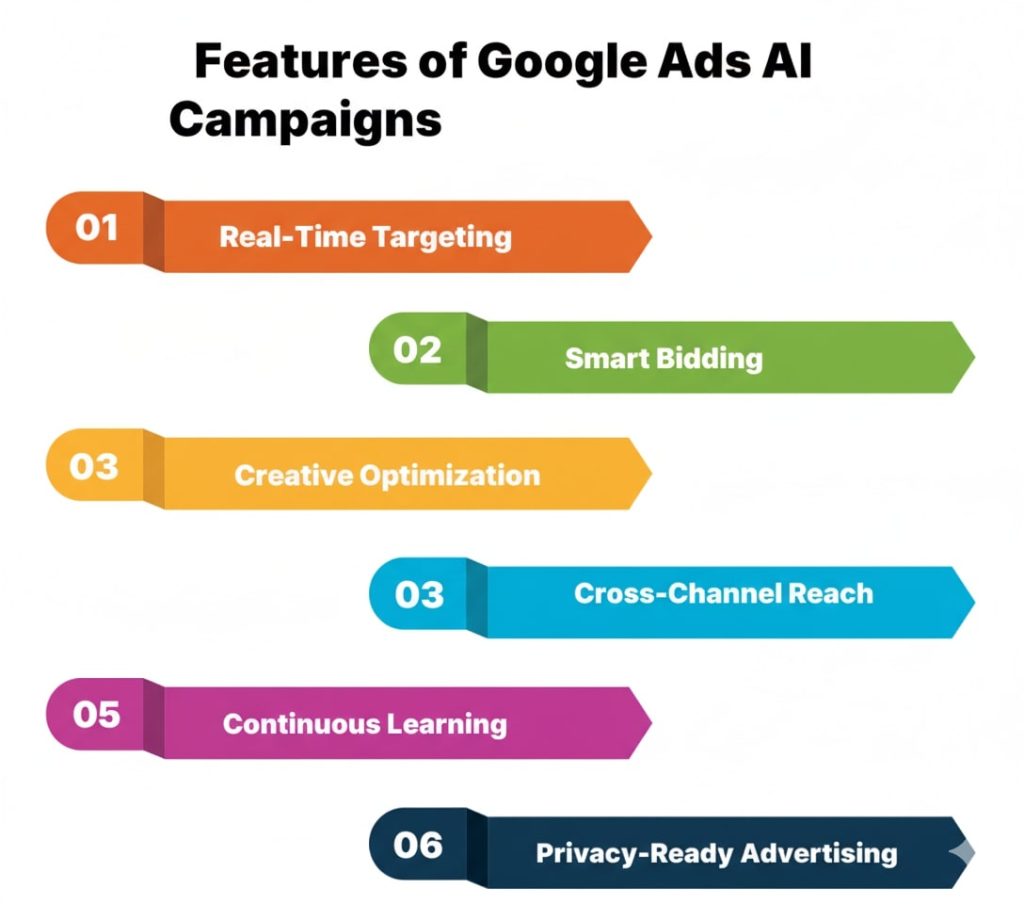
- Real-Time Targeting: Uses signals like location, device type, time of day, and user intent to identify high-potential customers. Goes beyond keyword matching by predicting which users are most likely to engage or convert.
- Smart Bidding: Automatically adjusts bids at the moment of auction to get the best conversion results. Supports strategies such as Target CPA, Target ROAS, and Maximize Conversions to align with business goals.
- Creative Optimization: Let’s advertisers upload multiple headlines, descriptions, images, and videos. AI tests different combinations, then delivers the most engaging version to each audience segment.
- Cross-Channel Reach: Runs ads across Google Search, Display Network, YouTube, Gmail, Maps, and Discover with one campaign.
- Continuous Learning: AI learns from each impression, click, and conversion to improve campaign accuracy over time.
- Privacy-Ready Advertising: Relies on first-party data and predictive models instead of third-party cookies. Keeps ads effective in a privacy-first world while ensuring compliance with data regulations.
Case Studies
Nike

- Ran a Performance Max campaign across Search, YouTube, Display, and Gmail. AI automatically determined which platforms and placements would drive the best results, eliminating the need for manual channel management.
- AI analyzed real-time purchase intent to show the most relevant ads to users. It evaluated signals like browsing behavior, device type, and location to predict purchase likelihood.
- Significant increase in online sales during product launches. Popular products sold out faster due to highly targeted ad delivery.
- Higher ROI on ad spend thanks to automated bidding focused on high-converting users.
- Personalized creatives improved engagement across all platforms. Different headlines, images, and videos were tested automatically to maximize CTR and conversions
Domino’s Pizza
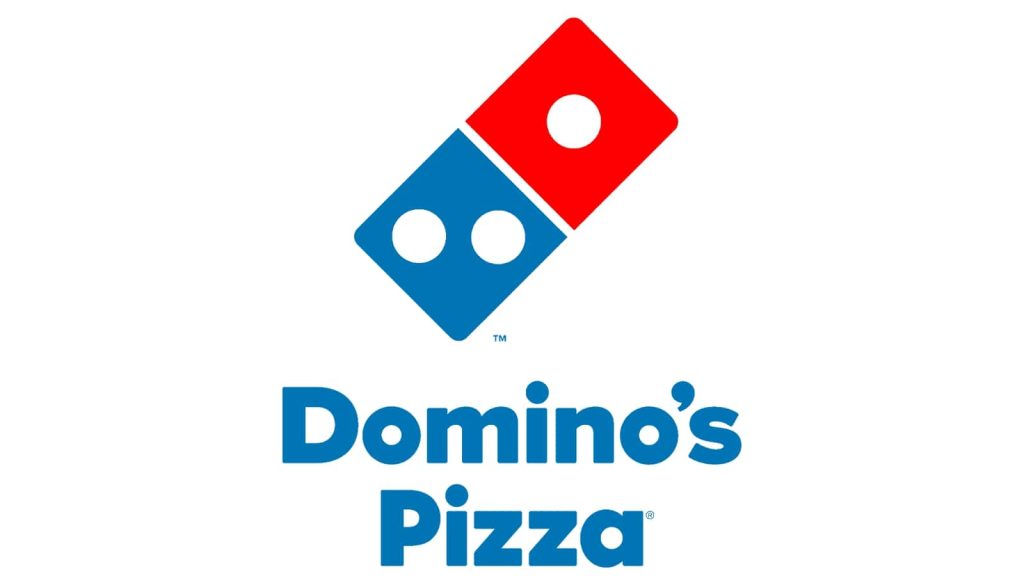
- Targeted high-intent local searches like “pizza near me” using AI-powered search campaigns.
- Dynamic ad copy adapted automatically for different locations, devices, and search behaviors.
- Increased local orders and app downloads. The campaign drove both online and offline engagement, linking mobile app actions to in-store orders.
- Reduced cost per conversion with Smart Bidding. AI adjusted bids for each search in real time, avoiding overspending on low-intent clicks.
- Reached high-intent customers effectively during peak hours. AI predicted when demand was highest and prioritized ads during those periods.
Booking.com
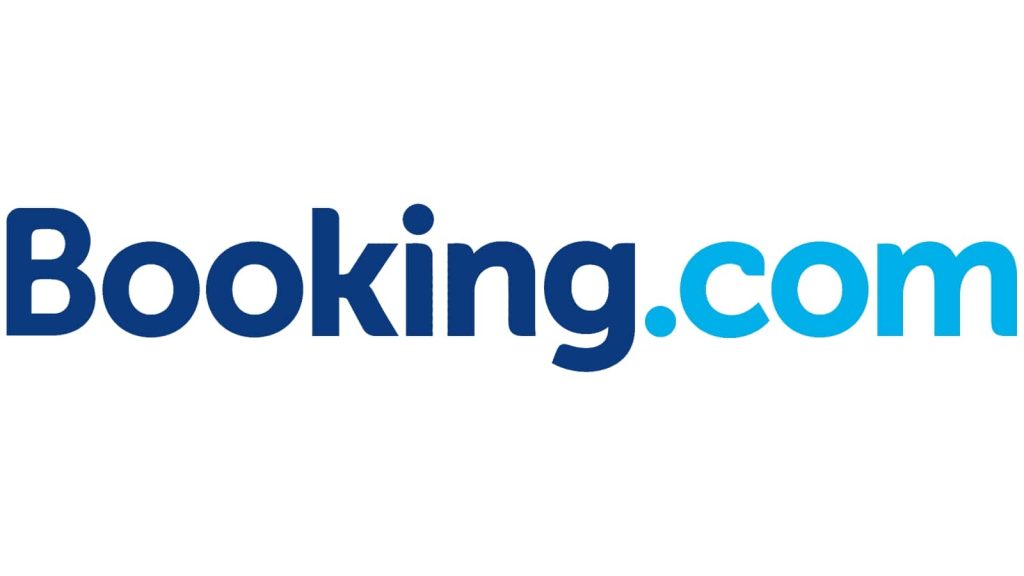
- Tested AI-generated interactive ads allowing users to ask questions and compare hotels. The interactive features provided real-time answers and suggestions to users’ queries.
- AI personalized visuals and content for each user to increase relevance. The system dynamically highlighted destinations, room types, and deals that matched user preferences.
- Higher engagement and interaction time with ads. Users spent more time exploring offers, increasing brand recall.
- Boosted booking conversions through relevant and immersive experiences. Personalized experiences guided users through the booking funnel faster.
- Ads became more engaging and effective thanks to AI-driven optimization. Continuous testing of visuals, headlines, and CTAs ensured that the highest-performing combinations were always displayed.
Sephora
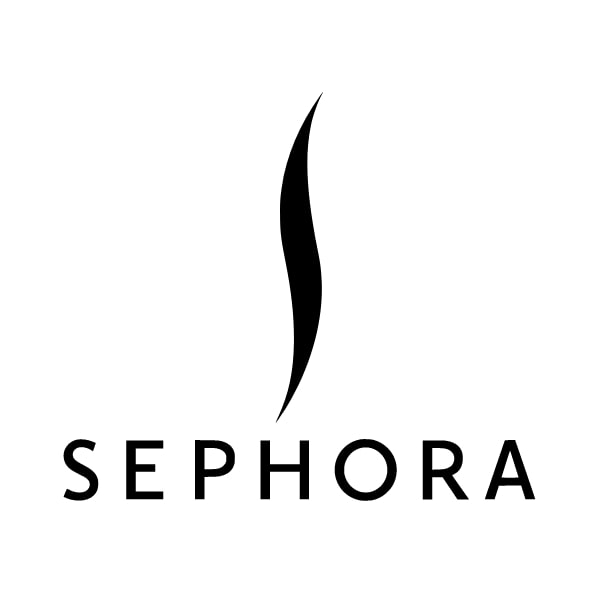
- Sephora used a Performance Max campaign to run ads across YouTube, Search, Display, and Gmail.
- AI analyzed customer intent, browsing behavior, and seasonal trends to identify beauty shoppers most likely to convert.
- The campaign drove a measurable increase in both eCommerce sales and local store visits.
- Automated bidding optimized for high-value customers, improving return on ad spend.
- Ads showcased beauty tutorials, product bundles, and personalized recommendations.
Airbnb
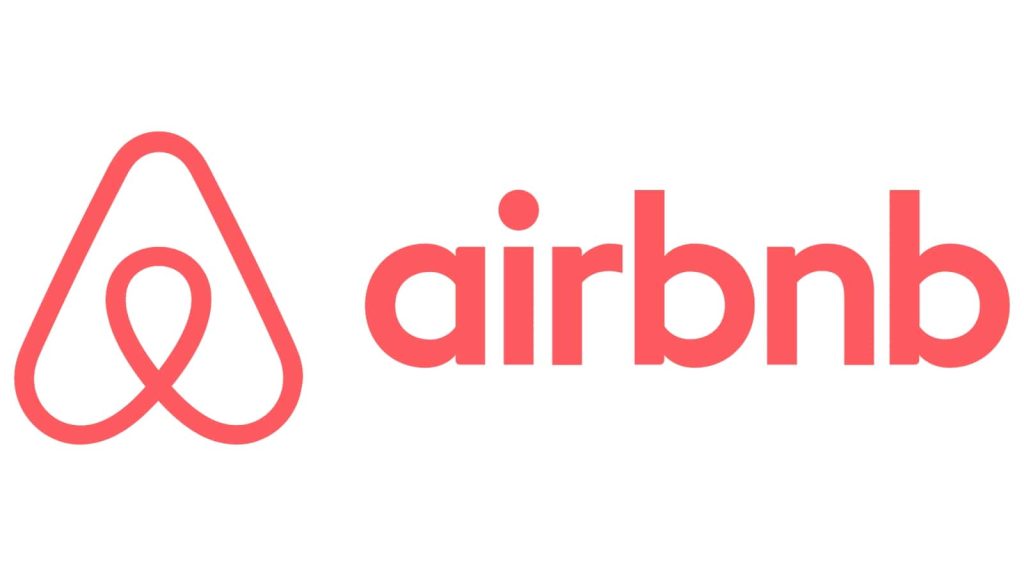
- Airbnb ran a mix of AI-powered Search and Display campaigns to capture travel intent.
- AI analyzed search queries, user locations, and trip preferences to match travelers with the most relevant listings.
- Campaigns delivered a significant increase in reservations, especially during peak holiday seasons.
- Smart Bidding adjusted bids in real time to prioritize high-value travelers.
- Ads featured properties tailored to user behavior, such as beachfront villas, cabins, or city apartments.
Conclusion
Google Ads AI campaigns are revolutionizing digital advertising by combining automation, machine learning, and real-time optimization. From Performance Max to AI-powered search, video, and interactive ad experiences, businesses can now reach the right audience at the right time with minimal manual effort.
Real-life examples from brands like Nike, Domino’s, and Booking.com show how AI-driven campaigns can boost sales, increase engagement, and deliver more efficient ad spend.
As AI continues to evolve, leveraging these campaigns in 2025 and beyond will be essential for marketers looking to stay competitive, scale their campaigns, and create personalized, impactful experiences for users.
Deepak Wadhwani has over 20 years experience in software/wireless technologies. He has worked with Fortune 500 companies including Intuit, ESRI, Qualcomm, Sprint, Verizon, Vodafone, Nortel, Microsoft and Oracle in over 60 countries. Deepak has worked on Internet marketing projects in San Diego, Los Angeles, Orange Country, Denver, Nashville, Kansas City, New York, San Francisco and Huntsville. Deepak has been a founder of technology Startups for one of the first Cityguides, yellow pages online and web based enterprise solutions. He is an internet marketing and technology expert & co-founder for a San Diego Internet marketing company.

